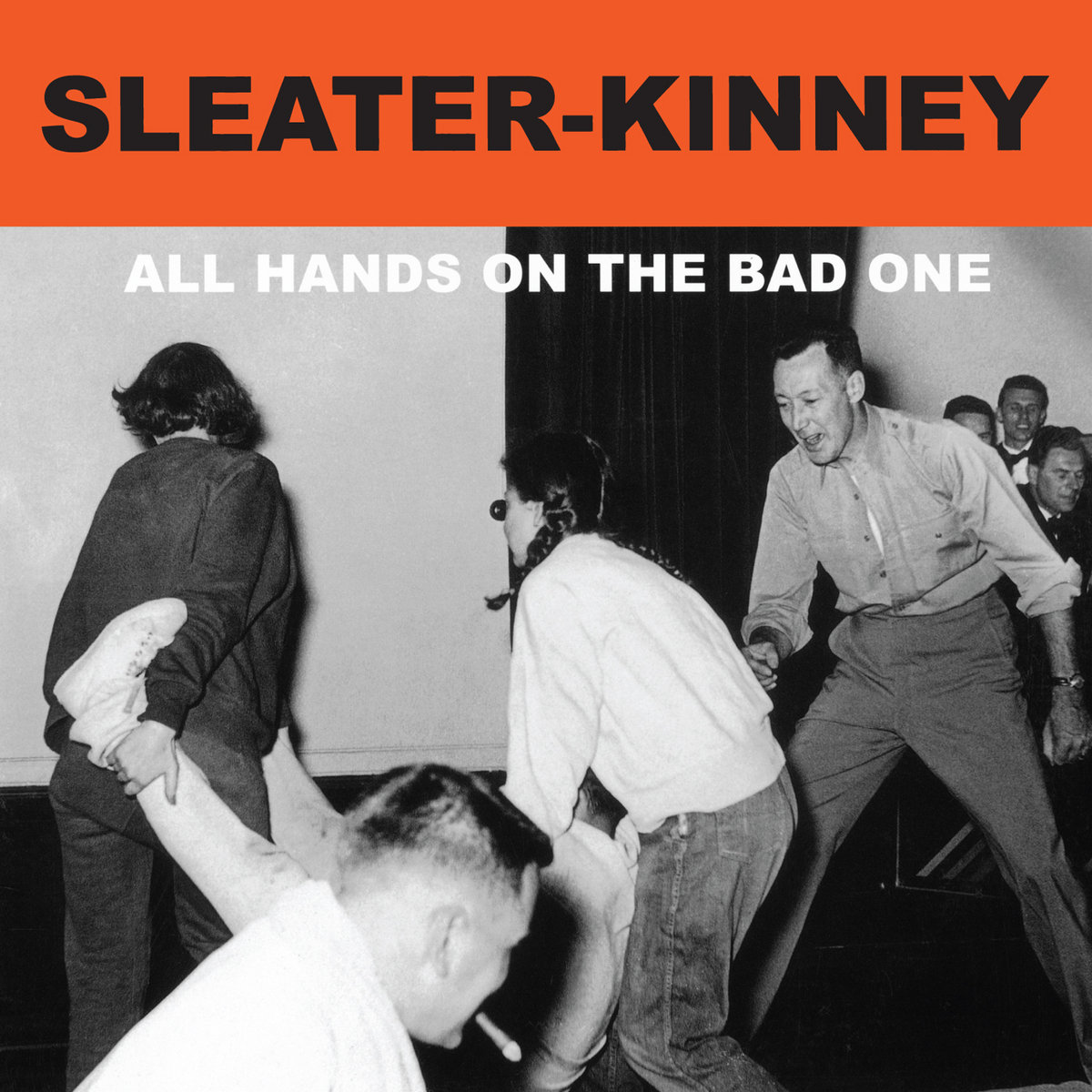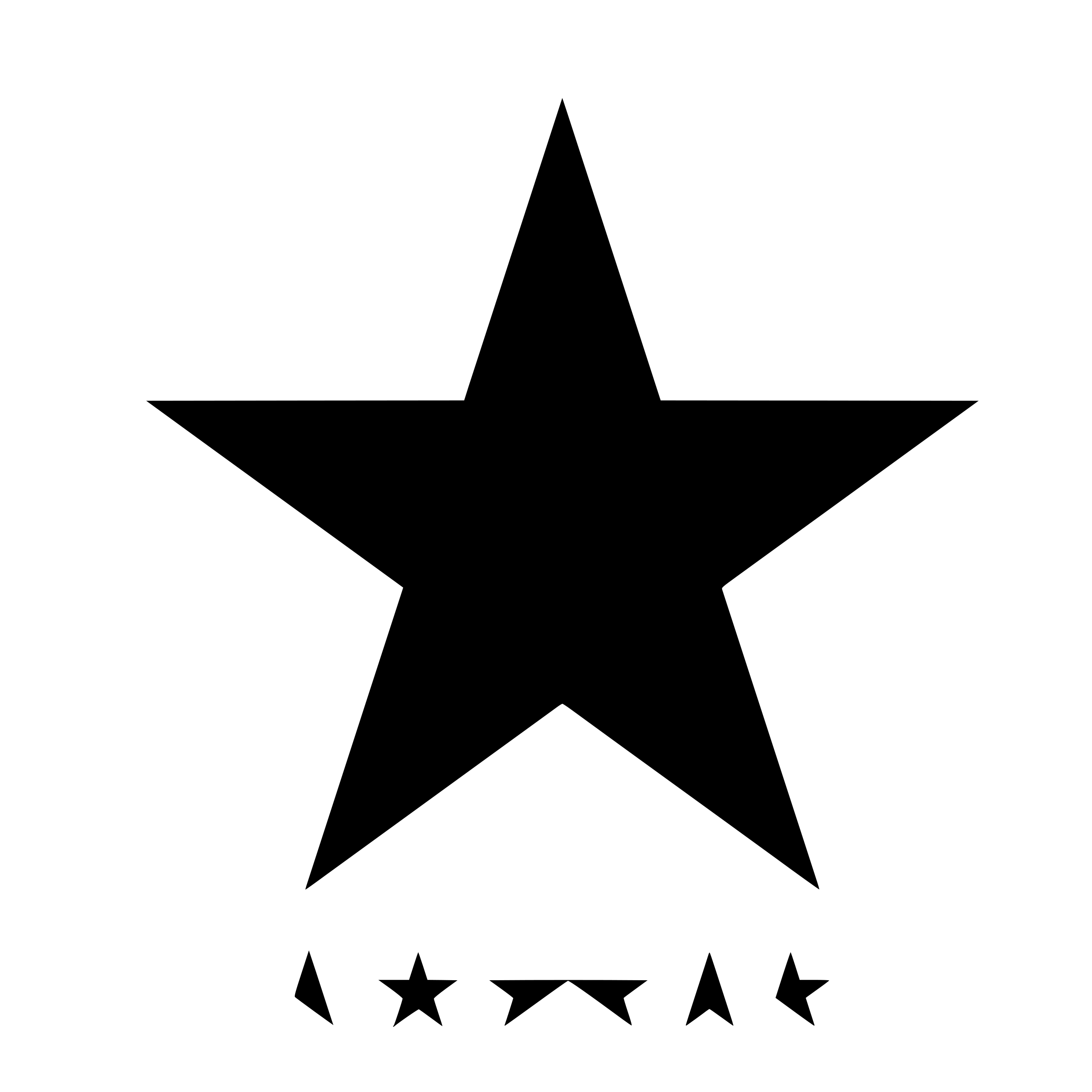Julian Casablancas didn't even exist yet, and Corin Tucker already cooked his ass. Casablancas was alive when Sleater-Kinney released All Hands On The Bad One, the triumphant face-exploder of an album that turns 20 tomorrow. The Strokes had started, but they were still playing the Mercury Lounge. They were still months away from releasing the Modern Age EP and kicking off their deafening buzz. The indie world wouldn't catch Strokes fever until the next year, but Tucker already had the man pegged.
Julian Casablancas, after all, represented a type, and that type had run deep in rock history. There's a song on All Hands where Tucker does what amounts to a Casablancas impression, though she can't have known it at the time. On the gorgeous slither-strut "Milkshake N' Honey," Tucker takes on the persona of that specific kind of international-playboy dirtbag-heartthrob rocker. The song tells a story: Tucker's narrator meets a girl in Paris, shacks up, runs up a credit card tab, and gets dumped. This narrator regrets nothing: "A user, abuser, a loser, but I didn't care/ I've always been a guy with a sweet tooth, and that girl was just like a king-sized candy bar."
Tucker even does the voice, temporarily transforming her heaven-shaking howl into that tough-to-imitate flirty-purr/hungover-rasp combination. It's a weirdly specific parody of a type that would soon become all too familiar. In a lot of ways, "Milkshake N' Honey" is an indictment of that character -- the suave and coked-out dickhead who looks at girls as candy bars. And yet Tucker still has a blast with it, rolling around the words in her mouth and savoring the taste: "This music gig doesn't pay that well, but the fans are all right." She's clowning this dude, and she's enjoying becoming him, too.
That's how All Hands On The Bad One works. Sleater-Kinney were on an all-time world-historic run -- five albums in six years, all of them essential. With each new LP, the trio picked up more critical notoriety and toured to slightly bigger rooms. But they were also the one band of women who'd broken into that space, and they were pissed off about it. On 1999's The Hot Rock, their previous album, Sleater-Kinney had gotten dense and insular, writing these tangled and quiet and emotional songs that took a moment to resonate. All Hands goes the opposite direction. It's a an immediate feather-boa fuck-you. Sleater-Kinney came out blasting with their biggest, brashest hooks and their most direct and black-and-white sloganeering. It was a hell of a combination.
Sleater-Kinney weren't exactly a heavyweight commercial force in 2000, but they were playing to larger crowds, and they probably pulled more consistent critical love than any band in America. This didn't satisfy them. If anything, it challenged them to crank up their swagger levels and get more pointed when they called out the shit that they saw. "Ballad Of A Ladyman" is a statement-of-intent snarl: "I could be demure like girls who are soft/ For boys who are fearful of getting an earful/ But I gotta rock!/ I'd rather be a Ladyman!" "You're No Rock 'N' Roll Fun" calls out the assholes who'd make fun of them for not partying hard enough on tour. "#1 Must Have" gets into extremely 2000 worries about the marketing of the underground that birthed the band: "They took our ideas to their marketing stars/ And now I'm spending all my days at girlpower.com/ Trying to buy back a little piece of me." (This was when you could imply satire just by adding "dot com" to the end of every phrase.) On "Male Model," they straight-up demand that "it's time for a new rock 'n' roll age." Subtlety was gone. Sleater-Kinney were talking their shit.
The anger was real. All Hands came out less than a year after Woodstock '99, and it looks out at that cultural moment with absolute untrammeled disgust. Tucker demands, "Will there always be concerts where women are raped?" It's not a rhetorical question. "Was It A Lie?," meanwhile, anticipates the YouTube-era internet panopticon, building a vast societal lament over an internet video of a girl dying on train tracks: "I want to close my eyes/ I want to cut the wires/ I want a day not made for you to see." Twenty years later, that day has not arrived.
For all its visceral force, All Hands remains the most purely fun record that Sleater-Kinney ever wrote. All Hands has heavy songs and pretty ones, but the soul of the album is in the revved-up sha-la-la power-pop bangers, the songs that took the glorious gibberish hook of the Dig Me Out highlight "Little Babies" as a starting point. This made their points hit harder. "You're No Rock 'N' Roll Fun," for instance, is more of a fizzy and immediate bop than anything that Sleater-Kinney's male peers were doing in 2000. (In the days before the early-decade garage-rock revival, nobody else would've even though to deploy a tambourine shimmy the way Janet Weiss does on that song.)
By 2000, Sleater-Kinney had made regular sport of covering cock-rock classics in their live shows. ("Fortunate Son," "More Than A Feeling," "Mother" -- the bootlegs were Napster gold.) On All Hands, they drew on new wave and garage rock to lay claim to their own piece of that legacy. Carrie Brownstein was hitting Pete Townshend guitar-vrooms. Janet Weiss' vocals were adding new layers to the band's harmonies. Corin Tucker wasn't afraid to get sneerily sarcastic even as she wailed at the moon. I still get excited when I listen to that album. All Hands came two years before Sleater-Kinney released the charged-up clarion call One Beat, the album that I consider to be their masterpiece. An album like One Beat would've called for unheard-of levels of confidence. All Hands is the album where you can hear that confidence first taking hold.
All Hands is a transitional album in the way that every Sleater-Kinney album is a transitional album. The band was dependably restless, and every album was an abrupt pivot from whatever had come before. All Hands has a couple of heart-wreckingly beautiful songs -- "Leave You Behind," "The Swimmer" -- that could've fit just fine on The Hot Rock. But for the most part, All Hands captures the moment that Sleater-Kinney switched into sparkly ass-kicker mode. I will always love it for that. Today, I can't name another album like All Hands. It's not Sleater-Kinney's best album, but it may be their most underrated. Sleater-Kinney had been on fire for so long that maybe people didn't hear this album for the dizzy melodic blast that it was.
I bought my copy of All Hands in the dead of a dismal Syracuse winter. I'd taken the bus from my dorm to the Sound Garden, the city's one cool record store (RIP), and I'd spent the afternoon flipping through the CDs in the used section, a regular ritual for me. This was two or three months before All Hands came out, but there was a promo copy of it sitting right there in the bin. (I don't know who in Syracuse was getting Sleater-Kinney promos and selling them back to the record store, but god bless that person.)
Sleater-Kinney had probably announced the album, but before the 24-hour internet indie rock news cycle, I had no idea that it was even coming out. I spent a few seconds staring at the CD case, verifying that this was an actual new Sleater-Kinney album that I was holding in my hands. I had to check the copyright date three or four times to convince myself. After I bought it, I pretty much ran home to throw that motherfucker on. I was so excited, and the album fed that excitement right back to me. It channeled that excitement -- the excitement that everyone who loved Sleater-Kinney probably felt when they got their own copies of the record -- and made something huge and catchy and communal out of it.
There's this idea that rock music had been dying before the Strokes and the White Stripes and the Hives and all the other class-of-2000 rock-revival beer-spitters came along and got their mugs plastered across the cover of every British music magazine. I am here to tell you that this idea was a lie. We already had Sleater-Kinney. And to this day, I maintain that Corin Tucker, for one song, made a better Julian Casablancas than Casablancas himself ever could.






